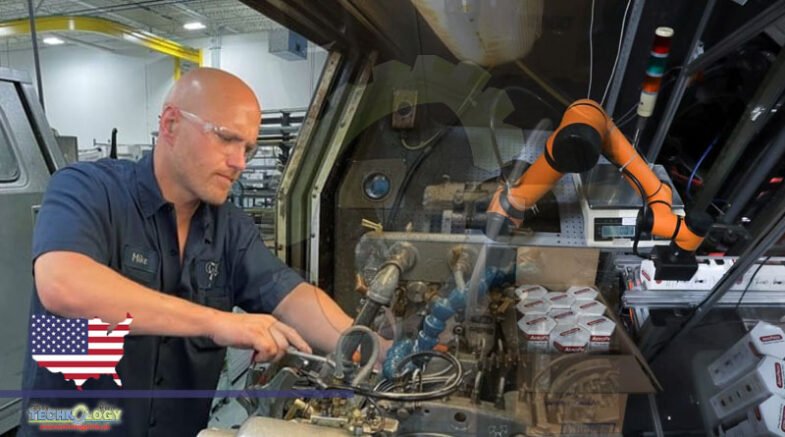Silicon Valley has a new pitch to persuade small to automate: rent-a-robot. Better technology and the need to pay higher wages to humans have produced a surge in sales of robots to big companies all across America. But few of these automatons are making it into smaller factories, which are wary of big upfront costs and lacking robot engineering talent.

Better technology and the need to pay higher wages to humans have produced a surge in sales of robots to big companies all across America. But few of these automatons are making it into smaller factories, which are wary of big upfront costs and lacking robot engineering talent.
So venture capitalists are backing a new financial model: Lease robots, install and maintain them, charge factories by the hour or month, cut the risk and initial costs.
Saman Farid, a former venture capitalist who invested in robots for over a decade and saw the challenges of getting robots into factories, set up rent-a-robot Formic Technologies with backing from Lux Capital and Initialized Capital, an early investor in self-driving tech start-up and Small Companies Cruise.
Initialized Capital partner Garry Tan sees a confluence of cheaper and better robot computer vision and artificial intelligence technology, low interest rates, and the threat of US-China tensions on supply chains stoking interest in robot subscriptions for Small Companies.
“It’s at the center of three of the largest mega trends that are driving all of society now,” said Tan.
Techies and small business owners do not always understand each other, a dilemma that led an industry group, the Association for Manufacturing Technology, to set up a San Francisco office a couple of years ago, to bring the two together.
The lease model puts much of the financial burden on robot start-ups which carry the risk of a manufacturer losing a contract or changing a product. Smaller factories often have small runs of more tailored products that are not worth a robot. And Silicon Valley Robotics, an industry group supporting robot start-ups, says that in the past, funding has been a challenge for Small Companies.
Still, some high-profile investors are on board.
Tiger Global, the biggest funder of tech start-ups this year, has backed three robot firms offering subscription in seven months.
MELVIN THE ROBOT
Bob Albert, whose family owns Polar Hardware Manufacturing for Small Companies, a 105-year-old metal stamping factory in Chicago, bought Formic’s pitch to pay less than US$10 an hour for a robot, compared with more than US$20 an hour for his average human worker.
He watched this month as a robot arm picked up a metal bar from a bin, spun around, and placed it in an older machine that bent it into a 107-cm door handle.
“If the robot works really well, we’ll use it a lot,” said Albert, who was pleased with the initial results. “And if it doesn’t work out, neither one of us comes out very well. We have less skin in the game and they have some skin in the game.”
Westec Plastics, a family-owned plastic molding factory in Livermore, California, got its first robot in January 2020 and now has three – named Melvin, Nancy and Kim – from Rapid Robotics which charges US$3,750 a month per robot in the first year and US$2,100 from year two.
“Melvin runs 24 hours a day, all three shifts, and that replaced three full operators,” said President Tammy Barras, adding that she is saving about US$60,000 in labour costs a year with the one robot alone.
“We’ve had to increase our wages quite significantly this year because of what is going on in the world. And luckily, Melvin has not increased his pay rate. He doesn’t ask for a raise.”
Barras, who has 102 employees, says robots cannot replace humans today as they can perform only repetitive, simple tasks like picking up a round plastic cylinder and stamping a company logo on the correct side.
Jordan Kretchmer, co-founder and CEO of Rapid Robotics, said he encounters some skepticism. “A lot of times we’ve walked in and there’s a graveyard of robots that they bought in the past,” he said. But he added, “robots can be easy and they do work when they’re in the hands of the right people”.
Source CNA